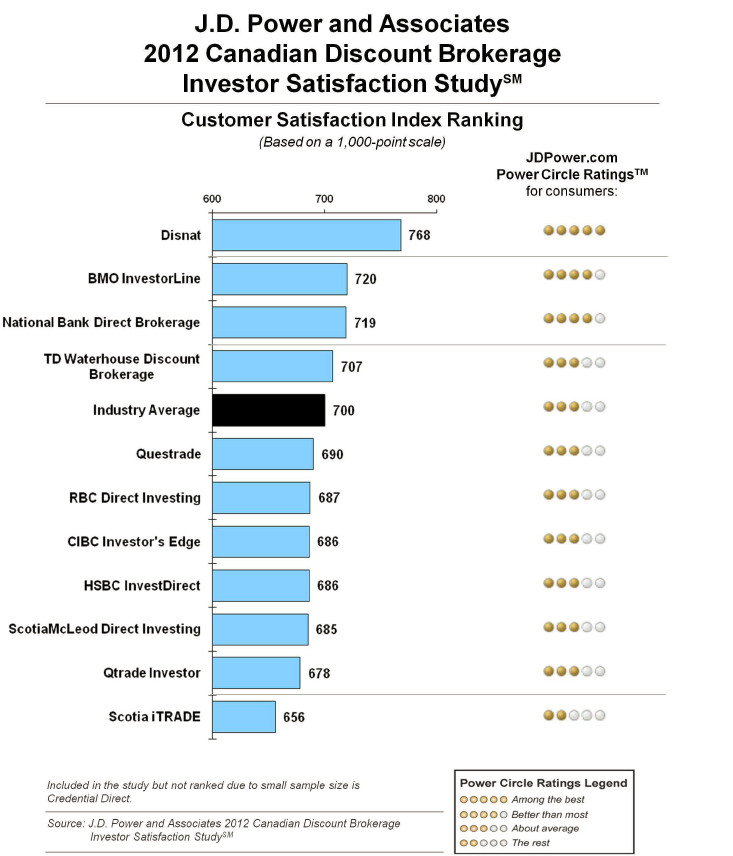This week the biggest news for discount brokerages came in the form of the 2012 Globe and Mail Canadian discount brokerage rankings. Rob Carrick’s annual survey of the Canadian discount brokerage industry looked at 12 firms this year. The top spot went to Virtual Brokers which narrowly edged out the six year champ, Qtrade while the bottom ranking company was HSBC InvestDirect. The average score (out of 100) was 61.2% (with a standard deviation of 10.0 for those who mind the stats). What was interesting about looking at the stats was how most of the companies performed about the same (statistically speaking) except for Virtual Brokers and Qtrade. What this means for self-directed investors is that the difference between 3rd and 12th is not that significant and that even 1st and 2nd are only slightly more distinguishable than the rest. To read more about the rankings and our analysis, click here. Also, we put together a sortable version of the table of this year’s results to help make it easier to compare.
Another very big piece of news from discount brokerage deals section was the announcement by Questrade of the unlimited trading promotion. Scotia iTrade was the first to offer unlimited trading for 100 days, however like all innovations in this very competitive market, there’s a good chance that others will try to do the same. What sets this deal apart from the one offered by Scotia iTrade is that Questrade is offering unlimited trading for account deposits as low as $1,000 and $25,000 whereas Scotia iTrade’s deal requires a minimum deposit of $50,000. Not all self-directed investors really need or want unlimited trades, especially if it is only for one or two months, but for some it is one more reason to lean towards Questrade.
Event Horizon
The upcoming week in events is a bit light as we come to the close of November and financial literacy month. One interesting looking seminar that is coming up this week is geared towards options trading. The TMX group will be presenting via Scotia iTrade, Understanding the Collar Strategy.
Best Canadian Discount Brokerage Tweet of the Week
This week’s best discount brokerage tweet again comes from the affiliate of Disnat Direct, @DesjardinsGroup. We saw this week’s tweet as a way to spread a little goodness for a worthy cause. Desjardins will be donating $50,000 to cancer research across three organizations that gets the most votes here.
The People Have Spoken
It was a very big week for the Canadian discount brokerage space with the release of the 2012 Globe and Mail brokerage rankings. A lot of buzz was created around whether these were actually seen as valuable or not. This thread in the Red Flag Deals personal finance forum was a particularly heated conversation.
